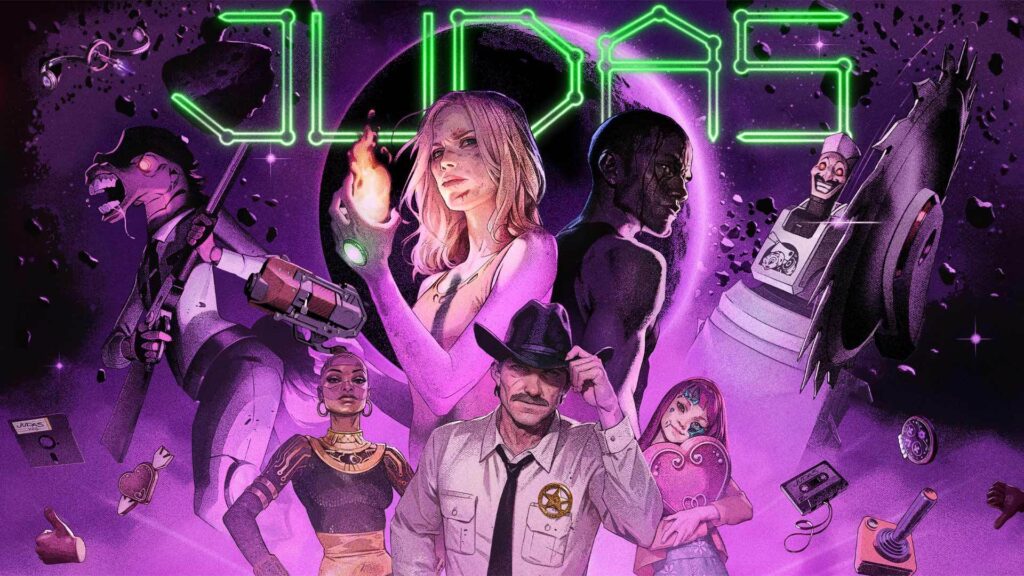
Ghost Story Games is continuing to peel back the layers of its upcoming sci-fi FPS Judas, directed by BioShock creator Ken Levine. In a recent developer blog, Levine revealed new details about the game’s Villainy system, which determines who the player’s primary antagonist will be. Central to this mechanic are the so-called “Big 3” characters, each of whom can either become an ally or transform into a powerful enemy depending on the player’s choices.
The Big 3: Allies or Foes
According to Levine, the Big 3 are pivotal NPCs that players can build relationships with throughout the story. Much like Elizabeth in BioShock Infinite, these characters have deep backstories that are revealed through player interaction. Spending time with them and learning about their struggles can strengthen bonds, leading to helpful support as the game progresses.
However, Judas won’t let players keep everyone happy. Levine explains that time and attention are limited, meaning at least one of the Big 3 will inevitably feel abandoned. The neglected character will then fall into Villainy, using their unique abilities against the player in devastating ways.
Villainy System Explained
The Villainy system ensures that no two playthroughs will be exactly the same. Players must carefully decide which Big 3 members to prioritize, weighing the benefits of their abilities against the risk of betrayal from those left behind. Levine compares this mechanic to the Nemesis System from Middle-earth: Shadow of Mordor, but emphasizes that Judas’ approach is more intimate and personal.
Instead of faceless rivals, the villains in Judas are characters players once trusted—making betrayal all the more painful. By the end of a playthrough, players will face off against someone they once called a friend, creating a sense of tragedy and consequence rarely seen in FPS games.
A Fresh Take on Narrative Choice
With no confirmed release window yet, Judas continues to build anticipation as more details emerge. The Villainy system promises an emotionally charged narrative that puts player agency at the forefront, ensuring that alliances, betrayals, and even the game’s villains are shaped entirely by the decisions players make.
For fans of story-driven shooters, Judas is shaping up to be one of the most intriguing releases of the decade.